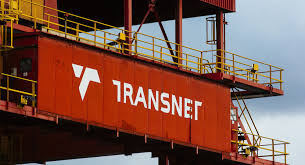Transnet Port Terminals has said its various port utilities were only half as busy during the coronavirus lockdown, as various logistics subsectors experienced a drop in demand for their services.
President Cyril Ramaphosa declared a national lockdown at the end of March, which was later extended to include the entire month of April. Despite being classified as an essential service, Transnet Port Terminals saw a significant dip in its activity, as the economy wound down in April.
The ports division of Transnet said the container sector continued with its operations in the last three weeks of the national lockdown, although at a reduced capacity, in order to observe social distancing in the working environment.
“Volume throughput per week has averaged 45 030 twenty-foot equivalent units during lockdown compared to a normal average of about 85 000 twenty-foot equivalent units across all its container terminals in Durban, Port Elizabeth, Ngqura, Cape Town and East London combined,” Transnet said.
Activity slump
Transnet said following the directive by Minister of Minerals and Energy, Gwede Mantashe, the bulk sector resumed operations in the second week of the national lockdown. But the sector currently averages 739 978 tons per week compared to over 1.5 million tons under normal circumstances
“An average of 3 264 fully built units are currently handled per week across automotive terminals combined compared to 15 000 fully built units under normal conditions of work.
“Operations in the break bulk sector are determined by demand and reviewed on a case-by-case basis with a current average of 77 118 tons compared to 399 000 tons,” said Transnet. Break bulk cargo is cargo that must be loaded individually rather than in containers or in bulk.
Rebates to soften the blow
Meanwhile, the International Trade Administration Commission of South Africa introduced an import rebate along with the South African Revenue Service at the beginning of the national lockdown, in line with government guidelines, to soften the blow of the pandemic.
“ITAC, together with SARS, has created a process for a full rebate of the customs duties and a VAT exemption on certain critical supplies. ITAC envisioned a very short turn-around for processing applications and the issuing of rebate certificates,” said an advisory from ITAC.
ITAC said it was receiving a larger number of applications for custom duty rebates than originally expected, which has meant that the originally stated turn-around time is being exceeded and is currently between three and five days.
“In light of this situation, additional officials are being deployed to process applications which, it is hoped, will shorten turn-around times,” the ITAC advisory said.
 Home Of Ghana News Ghana News, Entertainment And More
Home Of Ghana News Ghana News, Entertainment And More






